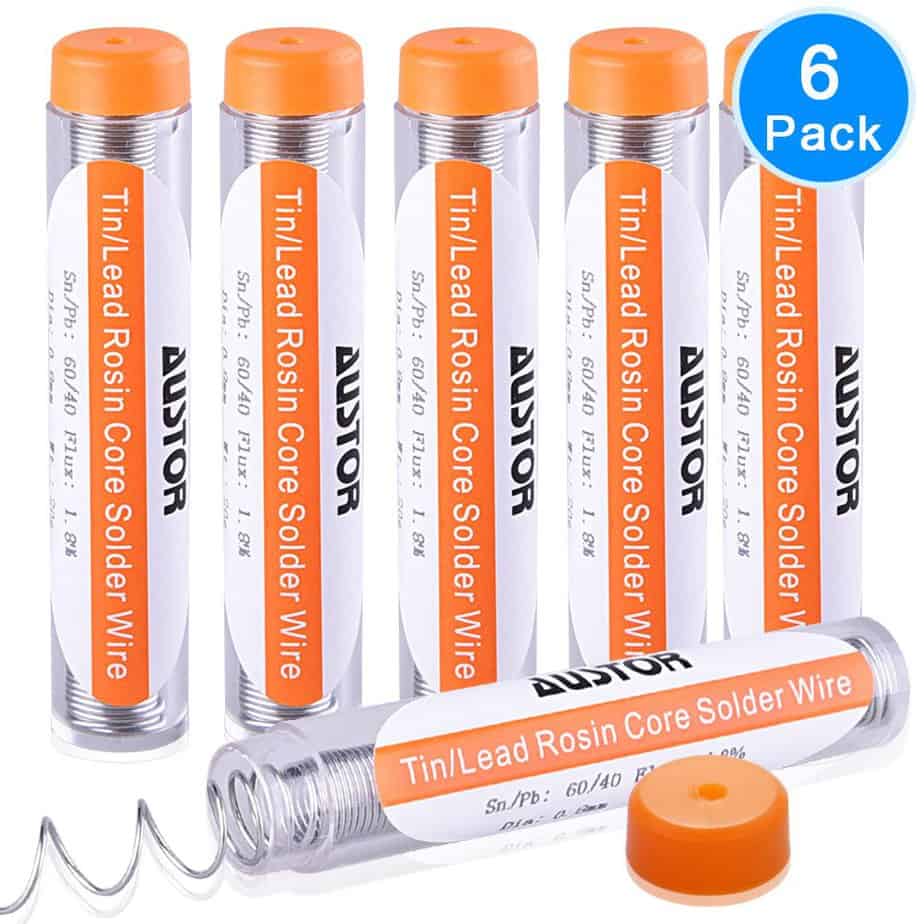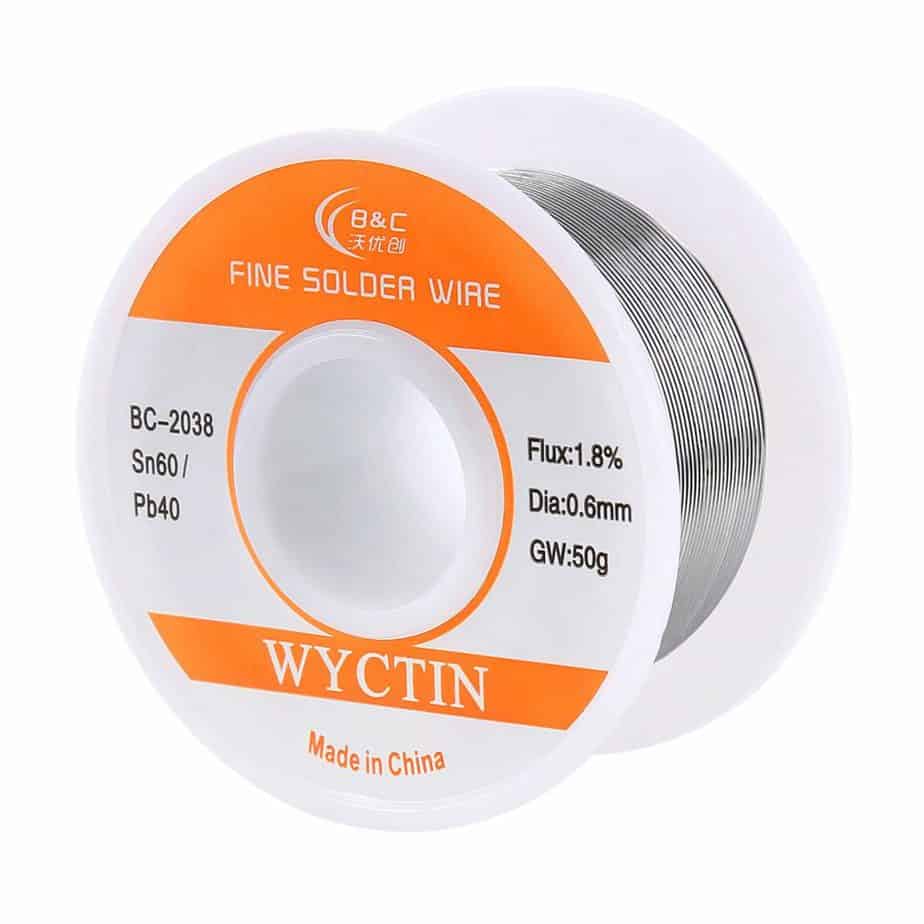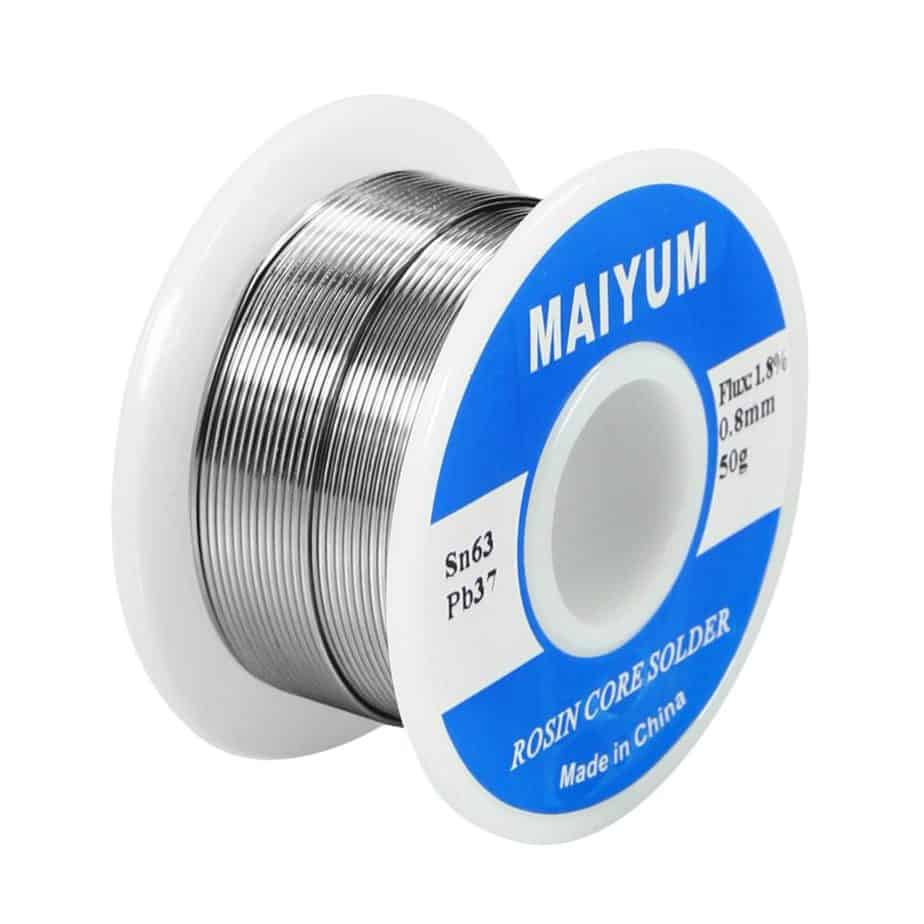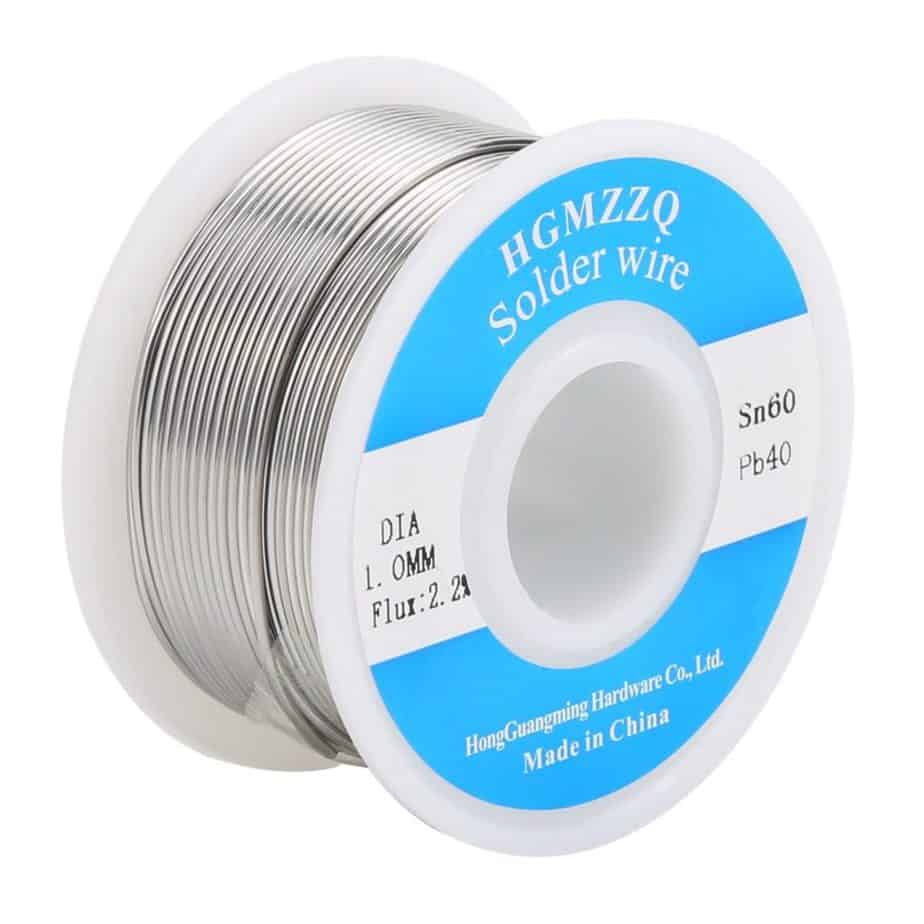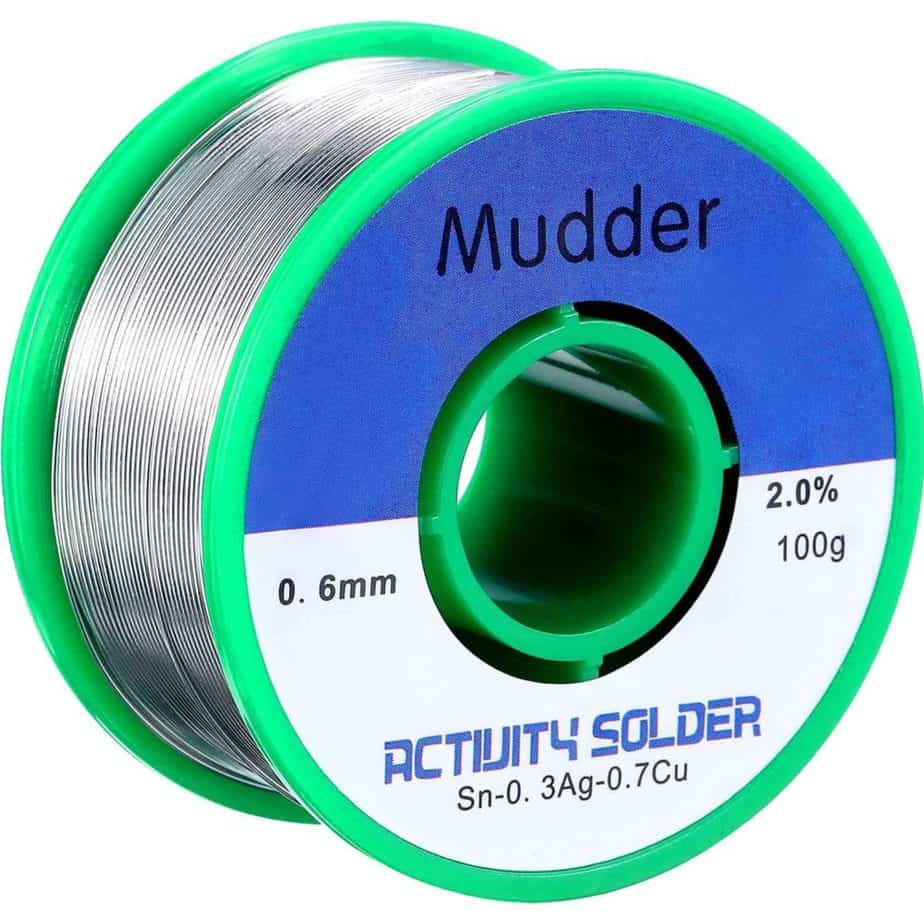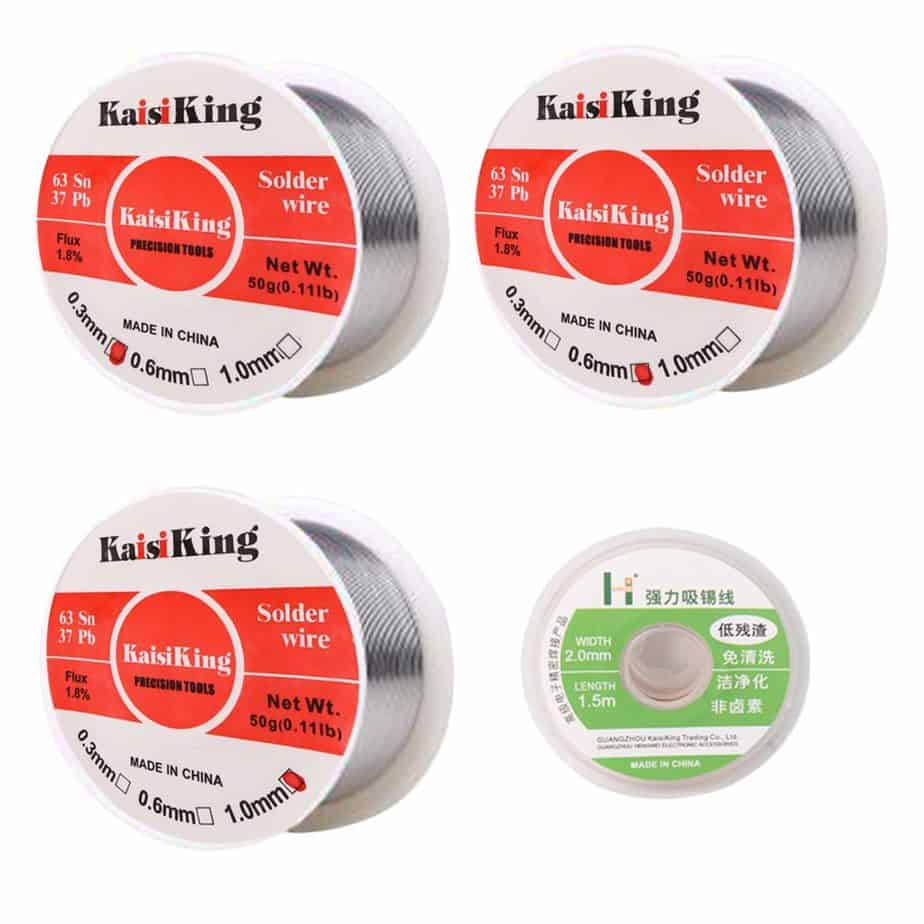If you are a regular guitarist who uses the instrument frequently, you will be aware of the common issues that arise with prolonged usage – for instance, your guitar’s pickups may need upgrading, or the guitar’s microphone or cable may need repairing. The fixes for all these issues involve soldering. Of course, it is possible to get it repaired by someone else/shops, but if you want to cut costs, the best option is to learn it yourself.
Soldering consists of several steps, the major ones being – creating a joint, creating a connection, removing a connection, and removing a joint. There are several tutorials online (both articles and videos) that elaborately explain the soldering process. You may perhaps take a look at one of the videos and practice soldering on cheaper materials. Once you are confident about the steps, you can proceed with soldering your guitar components. You can expect a good finish only if you use the best solder for the guitar.
Are you looking for something to patch your guitar together but unsure of where to invest in? A guitarist very often finds guitar solder helpful. It does a lot of wonders to help a guitarist. Guitar solder helps in improving the pickup of the guitar and improves other parts of the guitar well.
Soldering requires several tools – a soldering iron (it must be of at least 25 watts if you want to use it on the electric components of the guitar), a soldering wire, a damp sponge, a de-soldering braid, and pliers or tweezers. The soldering wire is an important tool. How does one choose the best solder for a guitar? A highly recommended solder for guitar is the rosin core 60/40. The wire is an alloy, and the number 60/40 signifies the ratio of tin to lead respectively.
Best Solder For Guitar – Buying Guide
There are many brands of soldering wire available in the market. Deciding the best solder for a guitar depends on certain factors and properties of the solder.
Factors to consider while choosing a soldering wire
To be able to make the right choice, you should be aware of certain properties like flux content, lead content, melting point, and size of the solder.
- Ventilation facility
If you have a proper ventilation facility, you can buy a cored solder wire. A cored soldering wire has a hollow at its core which is filled with a flux chemical (generally rosin). This would not pose a problem when used in well-ventilated areas. If there is a lack of ventilation or if you suffer from respiratory problems (such as asthma), it is better to go for non-rosin-based solders.
- The temperature
Each product comes with a different melting temperature. Look for products that melt and cool down quickly. This will help you finish your repair work faster. A typical 60/40 tin-lead alloy solder has a melting point of 190 degrees Celsius. There are temperature charts available online that will help you determine the right temperature of your soldering wire depending on its type and composition.
- The flux
Some soldiers have a hollow core filled with a flux chemical. The function of the flux is to prevent oxidization when the metal and air react. Rosin is commonly used as a flux. When heated, it becomes acidic and prevents oxidization. This material can trigger asthma attacks in people who suffer from asthma. Therefore, people are shifting to rosin-free flux chemicals.
Best Solders for Guitar Reviews
1. WYCTIN 60-40 Tin Lead Rosin Core Solder wire
This is the best solder for guitar as it has a fine rosin core, which is recommended for guitar soldering. It is an alloy with tin and lead mixed in the right amounts (60-40). The melting point of the soldering wire is 361°F. This makes it easy to use. Also, the solder melts evenly and is quite clean. It relatively produces less smoke and can solder joints smoothly. It has a shining soldering point and can be handled by beginners too.
Product Features:
- It has high-quality resin and sticks in the right place.
- The roll comes with plenty of solders and can be used for a longer time.
- With this product, there is no running of the flux.
- The solder’s strand is thin, melts quickly, and flows down with ease. It has good consistency and does not spill all over the place.
- The product’s joints are not much different from those of lead-free solder.
- The solder can well conduct even a low-voltage current.
- The product is perfect for intricate soldering.
2. AUSTOR 60-40 Rosin Core Solder
Austor solder has good solderability in both electrical and thermal conductivity. It works quickly and can be used with different types of the soldering iron. As it flows well and heats evenly, it is extremely easy to use. The soldering iron has a melting point of 365°F – 374°F. The solder roll has a plastic tube to protect iron if it is exposed to moisture or dust particles. It is compact and can be easily carried in a pocket. The product comes with a 45-day money-back guarantee.
Product features:
- It is a pack of 6 soldering wires. Hence it lasts longer.
- The solder gives a professional finish after soldering.
- It adheres well to the parts that need to be soldered and flows evenly.
- It is conveniently priced.
- One can carry it wherever one go.
- It melts and cools down almost instantly. You can keep the packs in your toolbox, and they can be refilled as and when you need them.
- You can expect a good shiny finish if you use this solder.
The product is perfect for general guitar work. Looking at the reviews, one can safely say that this is a suitable solder for a guitar.
3. HGMZZQ 60-40 Tin Lead Solder Wire
This is a high-quality Rosin core solder wire. The lower melting point makes it easy to use while soldering. The solder joints are strong and reliable. Due to its good flow, the user can expect clean soldering. It melts evenly upon heating. The solder is about 472 inches long which is sufficient for repeated use within the household. Also, it does not produce much smoke. It has got all the qualities of the best solder for a guitar.
Product features:
- If you regularly clean the tip and maintain it well, you can expect the soldering wire to melt quickly and stick well where it is supposed to.
- Once it cools down, it immediately becomes hard and rigid.
- The product has a flawless performance. It flows beautifully and in an even manner.
- It has anti-corrosive properties as well.
- It works great when used on small wires.
- The diameter of the solder is perfect for building guitar pedals.
- It is nice and shiny. The wire gives professional results.
- As it is quite thin, it works well for thin wires at low heat. Overall, it is guaranteed to provide satisfactory results.
4. Mudder Lead-free Solder Wire
Unlike the products mentioned before, which are an alloy of tin and lead, this solder does not contain lead. So, the user is not exposed to lead while performing soldering. A high-quality rosin core wire with a solder wire reel helps in speeding up the soldering process. It has a melting point of 417-428 degrees Fahrenheit. It is a functional and practical solder wire. This wire has a good length to last long enough. It can be used for a wide range of applications including guitar pedals, household repairs, and DIY projects.
Product features:
- The solder is solid and provides a strong finish.
- A striking feature is that it does not sputter or hiss. Thus, it is easier to use, even for beginners.
- It melts quickly and flows consistently. It does not pile or run.
- At the right temperature, it works perfectly.
- It can cool down and flow multiple times without the user adding extra flux.
- The pricing is great.
- The product is packaged with care and shipped. So, there is no need to worry about product damage.
All these factors make it a good solder for guitar.
5. Kaisiking Tin-lead solder wire set
This product is a set of 3 soldering wires with different diameters each (0.3mm, 0.6 mm, and 1.00 mm). The solder flows smoothly and heats evenly. It is a low-melting-point solder. It neither produces any smoke nor any odor while soldering. The soldering points are marked brightly and are strong. The product has some unique features such as electrical insulation and inoxidizability. When heated, the solder does not run or splash around. It hardly leaves any residue after soldering, so you can expect a clean process.
Product features:
- The product is designed to exhibit resistance to heat.
- The seller provides a set of tweezers with the product. So the user can avoid getting their fingertips burnt while soldering.
- You are also provided with a board to organize the parts you are working with. Thoughtfully, some of the spots on the board are magnetized!
- Along with the solder, you are provided with an anti-static wrist cord as well.
- For the quality of the product and the number of accessories provided, it is priced well.
6. MAYYUM 63-37 Tin-lead Rosin core solder
With an extremely good soldering capability, MAYYUM is undoubtedly the best solder for guitar. It is an alloy of 63% tin and 37% lead. It has a low melting point of 183 degrees Celsius (or 361 degrees Fahrenheit). It is easy to use as it flows smoothly and evenly. Soldering can be accomplished quickly using this solder. It has around 1.8% flux content and is safe to use. Compared to other wires, this has a much stronger soldering point. It works very well and is one of the best soldiers in the market.
Product features:
- When in use, the product doesn’t emit any odor.
- The amount of flux is just right. It is easy to obtain bright shiny joints. It is a thin 0.88 mm wire but can produce strong joints.
- Due to its size and melting point, it gets the job done quickly.
- The product is of high quality but at an unbelievable price!
- It holds on well to any household product that requires soldering. This ratio of the alloy is more effective than the usual 60-40.
Conclusion
If you are unfamiliar with soldering, it is wiser to take some precautions before going ahead with the process.
- Solder in a well-ventilated area. The process involves fumes which may be harmful if there is no proper outlet for the fumes. Some soldering wires contain lead, so fumes from these need to have space to escape.
- After you are done soldering, make sure to clean your hands well to get rid of the chemicals. Any residue from the process left on your hands can prove to be fatal.
- Handle the soldering iron carefully. Do not touch it when it is hot.
With practice, you can master the process and perform it confidently. Make use of the factors listed above to help you in choosing the best solder for the guitar. While soldering, use tape to protect the wooden areas of your guitar. Otherwise, melted potions of the solder may drip into other regions in your guitar.
If you are soldering for the first time, do not start with your guitar right away. Practice it on a non-expensive object before you move to the guitar.
FAQs
-
What is a solder?
Whenever you make a DIY circuit, you require solder to connect 2 elements. People commonly do confuse a wire and a solder, but in reality, there is a lot of difference between the two. A solder is more like a tube that melts between two elements to connect them and make your DIY circuit work.
-
Is guitar solder necessary?
Yes, soldering your guitar is very important for maintaining its longevity of the guitar. It helps the guitar. If you are a regular guitarist you will definitely need a guitar solder done once in a while because it affects a great deal to the pick-up of your guitar.
The most common guitar solder is a 60/40 rosin core solder. This is how the ratio of lead to tin should look like. 60/40 rosin core solder combination is a great combination for your guitar as the rosin core loosens and mixes the metals and bonds the solder.
-
What are the necessary guitar solder tools required?
- Solder:
The most common and known soldering technique for a guitarist is a 60/40 rosin core solder.
- Soldering Iron:
The very important thing to get started is that you use a soldering iron that consists of at least 25 elements. If you are a beginner then you should stick between the range of 25 – 50. This much is enough for connections to be made without speed.
- Pilers:
Since you will be playing with a lot of hot materials, it is always better to keep a piler as a safety tool in case you need to hold something.
-
Is there any difference between 60/40 rosin core solder and 63 37 for guitar solder?
The primary advantage that 60/40 rosin core solder has over 63 37 is that it has 60% tin and 40% lead. Whereas a 63:37 has 63 tin and 37 lead. The primary advantage of 60:40 is that it is best for DIY use. Beginners can easily start with these because they do not form cracks easily even when the joints move during soldering. 63:37 is a eutectic. It has a semi-solid state which means that if the joint moves during the process then it will have cold shoulder joints.

Hi, I am William. I am a music enthusiast. I play the guitar and ukulele. I like to try out all instruments and review them, to help others make an informed decision. You must choose the right instrument to get that sweet sound you desire. When I am not on my instruments I will be found reading or cooking.

